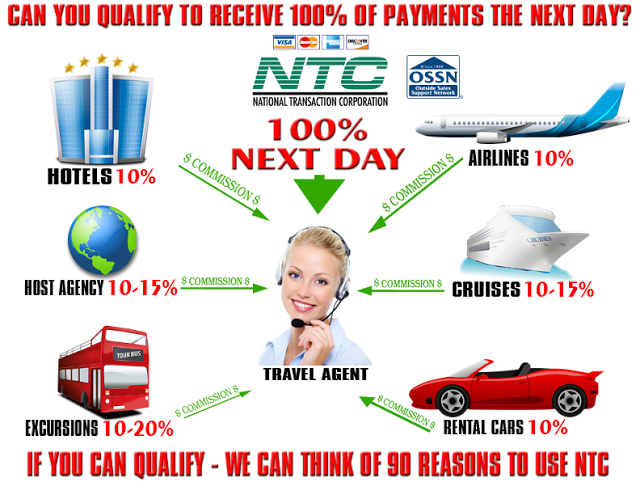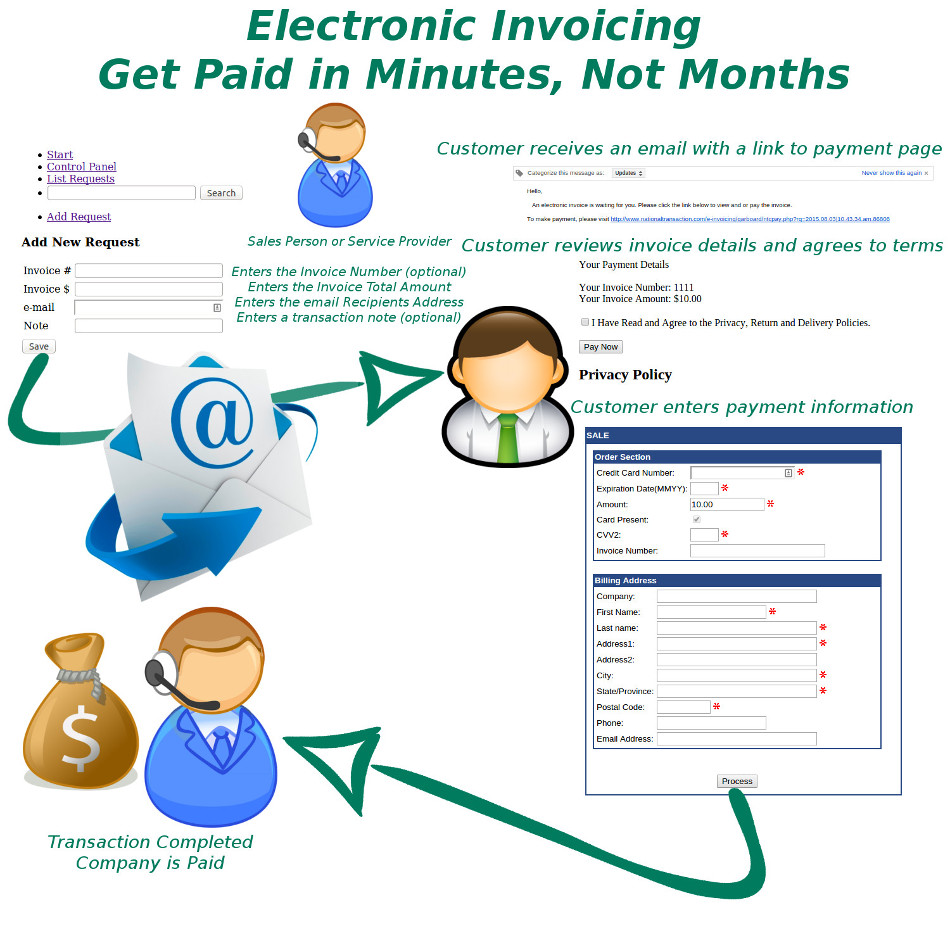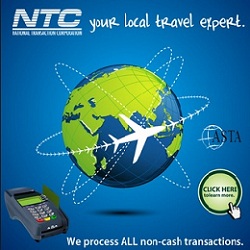
December 18th, 2024 by Elma Jane
What makes your travel merchant account high risk?
Travel environments are unique and transactions are usually keyed in. There’s almost always a delayed delivery period, and large ticket transactions.
One card holder may be paying for multiple tickets and they tend to be seasonal; with peak season months generating an unusual spike in their “average” monthly volume and chargebacks, pose a potential threat by travelers who are unable to complete their trip.
These factors can cause for either a reserve or account termination. Therefore travel merchant accounts are considered high risk.
Most merchants do not realize that merchant processors carry a financial risk on merchant accounts, and normally fund merchants prior to receiving payment from the client’s bank. Therefore, a merchant account is an unsecured loan.
The merchant runs a transaction and at the end of the day they settle their batch. The merchant will receive the funds for that batch in their bank account within 2 business days, even though the travel arrangements the client paid for do not take place right away.
Here at National Transaction Corp, we specialize in understanding what makes your transactions as a travel agent unique and how they affect your merchant account.
Educating the merchant and ensuring they have a good understanding of what makes travel merchant account high risk, is one of our specialties.
Call NTC to speak with a Travel Merchant Account Specialist today!
Dial 888-996-2273
Posted in Best Practices for Merchants, Travel Agency Agents Tagged with: bank, card, chargebacks, financial, loan, merchant, payment, processors, transactions, travel, travel agent, Travel Merchant

October 30th, 2024 by Elma Jane
This is a question we encounter on a daily basis. Travel environments are unique in that your transactions are usually keyed, there is almost always a delayed delivery period, large ticket transactions are not uncommon since one cardholder may be paying for multiple tickets, they tend to be seasonal, with peak season months generating an unusual spike in their “average” monthly volume, and chargeback’s pose a potential threat by travelers who are unable to complete their trip. Combine even a few of these factors together and you have cause for a reserve, or even account termination.
Being a part of a MO/TO (Mail Order/Telephone Order) or Keyed environment carries an increased risk of potential fraud or unauthorized use of a credit card. Since the credit card and cardholder are not present at the time of the transaction, the merchant has a limited ability to ensure the card is not being misused or that the proper AVS (address Verification Service) information is provided. NTC stresses the use of Credit Card authorization forms in order to obtain the correct credit card number, expiration date, billing address, and signature of the cardholder.
Travel merchants tend to have periods of increased volume based on peak travel seasons, whereas most other industries tend to have the same average monthly volume every month. This can generate spikes in volume on the merchant account that can trigger security concerns with the processor. Helping the merchant to analyze their volume trends and reporting the trends to the underwriters helps eliminate the security concerns when these spikes occur.
Large transactions which exceed the average sale amount for the merchant account can also trigger security concerns. Merchants who do not inform their merchant processor of large transactions prior to charging the credit cards can trigger security concerns and cause funding delays and reserve holds. Educating and clearly communicating with the merchant how to handle large tickets, volume spikes, and group bookings, prevents reserves, funding delays and/or other merchant account issues.
Another concern from the underwriters is the delayed delivery time frame. Delayed Delivery refers to the amount of time between accepting a credit card payment (whether a deposit or full purchase) and the time the cardholder travels. The client’s credit card is billed and the travel agent is paid however, the trip the travel agent was paid for doesn’t generally take place for 2 to 3 months. This leaves a lot of time for things to change, and should the client not travel for some reason, the first thing they do if the travel agent does not issue a refund, is claim a chargeback. NTC offers quite a few tips that can help protect the travel agent from chargeback situations.
Most merchants do not realize that merchant processors carry a financial risk on merchant accounts, and normally fund merchants prior to receiving payment from the client’s bank. Essentially, a merchant account is an unsecured loan. The merchant runs a transaction and at the end of the day they settle their batch. Generally the merchant will receive the funds for that batch in their bank account within 2 business days even though the travel arrangements the client paid for do not take place right away.
Here at National Transaction Corp, we specialize in understanding what makes your transactions, as a travel agent, unique in how they affect your merchant account. Educating the merchant and ensuring they have a good understanding of what makes travel merchant account high risk, is one of our specialties. We have established a special relationship with our underwriting department which facilitates our ability to approve your high risk travel merchant account.
Contact your travel merchant account specialists at NTC today.
Mark Fravel
National Transaction Corp
Founder and President
888-996-2273
Posted in Best Practices for Merchants, Travel Agency Agents Tagged with: address verification service, avs, card holder, card payment, chargeback, credit card, Mail Order/Telephone Order, merchant, merchant account, merchant processor, moto, transactions, travel agent, Travel environments, travel merchants
September 23rd, 2016 by Elma Jane
What is ARC, IATA, and CLIA? what’s the difference? What it does and what type of agents would benefit most from it.
CLIA Number – is a way for vendors to identify you as a travel agent. It is issued by the Cruise Lines International Association; without the ARC accreditation, CLIA agencies cannot issue airline tickets since CLIA numbers were designed specifically for cruise-focused travel agencies.
You don’t need to get your own CLIA number if you’re working with a host agency. You can always go under their umbrella organization and use their identification number therefore, it won’t incur the costs associated with obtaining your own CLIA number.
If you are not issuing airline tickets, CLIA is a practical option because it is NOT accepted by the airlines, but nearly accepted everywhere.
CLIA vs. ARC/IATA Number – If you’re ticketing air-only reservation, ARC and IATA are must-haves.
ARC (Airlines Reporting Corporation) – gives out these ARC numbers to accredited agencies, which allows travel agencies to issue airline tickets.
The use of an ARC number extends from either a hotel to a cruise ship booking not only air tickets for travel agencies.
For a home-based travel agent or a storefront agency that only books leisure travel (no air), having your own ARC number seems too much.
IATA – International Air Transport Association Network use extensive data resource to connect the suppliers to the U.S. travel distribution network.
IATA ID card holders get promotional benefits. A concessionary incentives from suppliers (participating members) who identify the agent with an IATA/IATAN number as a valid associate; in addition to approving travel agents for the sale of travel tickets.
IATA certifies either a referral agent or an affiliate travel agent to find clients for the hosting travel agency’s business needs as well.
Give us a call 888-996-2273 and and process your travel agency payments for less!
Posted in Best Practices for Merchants, Travel Agency Agents Tagged with: card holders, payments, travel, travel agencies, travel agent

June 22nd, 2016 by Elma Jane
What is ARC, IATA, and CLIA? what’s the difference? What it does and what type of agents would benefit most from it.
CLIA Number – is issued by the Cruise Lines International Association. It’s a way for vendors to identify you as a travel agent. It serves the same purpose as the ARC or IATA number, it’s just issued by another organization and has different barriers to entry and costs associated with it. CLIA agencies without ARC accreditation cannot issue airline tickets since CLIA numbers were designed specifically for cruise-focused travel agencies. You can always go under an umbrella organization like a host agency, you don’t need to get your own CLIA number if you’re working with a host agency. You can use their identification number and won’t incur the costs associated with obtaining your own CLIA number. While CLIA is accepted nearly everywhere, it’s NOT accepted by the airlines. If you are not issuing airline tickets, CLIA is a practical option.
CLIA vs. ARC/IATA Number – If you’re ticketing air-only reservation, ARC and IATA are must-haves.
ARC (Airlines Reporting Corporation) – gives out these ARC numbers to accredited agencies, which allows travel agencies to issue airline tickets. The use of an ARC number extends from a hotel to a cruise ship booking not only air tickets for travel agencies. For a home-based travel agent or a storefront agency that only books leisure travel (no air), having your own ARC number is too much.
IATA – International Air Transport Association Network (IATAN) use extensive data resource to connect the suppliers to the U.S. travel distribution network. IATAN ID card holders get promotional benefits and concessionary incentives from suppliers (participating members) who identify the agent with an IATA/IATAN number as a valid associate, in addition to approving travel agents for the sale of travel tickets. IATA certifies a referral agent or an affiliate travel agent to find clients for the hosting travel agency’s business needs as well.
Posted in Best Practices for Merchants, Travel Agency Agents Tagged with: agents, card, data, host agency, travel agent, vendors

March 9th, 2016 by Elma Jane
Lisa an independent Travel agent started her business in October 2006. She has been using her bank as their credit card processor and use to do a manual type-in process. When she learned about NTC while trying to shop online because she thinks it’s time for her to upgrade her system, Lisa found that NTC is not only a payment expert when it comes to travel, but a technology expert as well that met her business’s needs.
Lisa is using NTC e-Pay an electronic invoicing that has streamlined their credit card processing. The process not only has it saved money with competitive rates but most importantly it saves time. The level of assistance provided went above and beyond what she expected.
NTC e-Pay is for all types of merchants in a Card-Not-Present Transaction.
Consumer Acess – consumer will have access to their transaction details on their device. For travel merchants, the consumer can have access to their itinerary while on the go!
Customizable Pricing – when custom pricing becomes an issue, shopping carts, POS systems and booking engines tend to get really complicated.
Fast – saves time and unnecessary cost. Moves money efficiently and effectively. Simply email payment request that can be paid in 2 simple steps.
- The customer receives an email with a link to the payment page. Customer reviews invoice details and agrees to terms. The customer enters payment information.
- Process, transaction is completed company is paid. You get paid in minutes, not months.
Protects you from Chargeback – the customer is required to agree to your Refund Policy, Privacy Policy, Timing and Delivery Policy.
Secured – credit card information is processed securely. The customer is entering their credit card information without faxing or emailing credit card numbers.
The no shopping cart e-Commerce solution! – avoids the complexities of a shopping cart or integration into an accounting or POS.
Thinking of upgrading your system give us a call at 888-996-2273 and know more of our NTC e-Pay platform.
Posted in Best Practices for Merchants, Travel Agency Agents Tagged with: bank, chargeback, consumer, credit card, Electronic invoicing, merchants, online, payment, POS, processor, shopping carts, transaction, travel, travel agent

November 16th, 2015 by Elma Jane
Travel Ban, Alert and Warning what’s the Difference?
Deciphering the difference between Travel Alerts and Travel Warnings can be confusing.
Travel Alerts – U.S. Department of State’s international travel alerts are issued around short-term events. Alerts are generally short-lived, and the government doesn’t hesitate to pull the alert once the potential concern has passed.
Travel Warnings – Federal Aviation Administration (FAA’s) travel bans on the other hand are the government’s gentle way of suggesting that you reconsider your trip entirely. Unstable government, civil war, ongoing intense crime or violence, and frequent terrorist attacks are all listed as potential reasons for a warning. Unlike alerts, warnings may stay in place for many years at a time if the climate of potential danger persists.
No matter where you are headed, remember that your safety must be your own priority. Americans traveling abroad should educate themselves on areas of the world to be avoided.
Posted in Best Practices for Merchants, Travel Agency Agents Tagged with: travel, travel agency, travel agent, travel industry, travel merchants

October 30th, 2015 by Elma Jane
National Transaction Corporation is the preferred Credit Card Processing Agent for many National Travel Agencies & Associations. We are the preferred merchant account service provider for ASTA, OSSN, ARTA, HBTA,Vacation.com, Travel Leaders, Trams and many more. We are also affiliated with JaxFax, Travel weekly, TRO / Travel Research Online and other travel agency associations in the travel agent industry.
Benefits of our Merchant Account Services for Travel Agencies.
Competitive credit card processing rates & fees for travel agents
Faster deposits (as quick as 24 hrs from transaction)
No holds on funding
Trams Credit Card Merchant Account Integration
Sabre Red Merchant Account Integration
Booking Software Processing Integration
Lower Processing Rates & Fees
Swiped Rates for face to face credit card processing
ecommerce for shopping cart credit card processing
National Transaction Corporation has a proven track record with many of the Largest Travel Agency Associations in the U.S. and Canada. In fact for several of those, we are the preferred credit card processing merchant account services provider for their members. We can take your business to the next level with integration into Trams, Sabre, Sabre Red or off the shelf accounting programs like QuickBooks and Peachtree Accounting.
We are more than happy to provide you with a free merchant account rate review and go over your current credit card processing details and show you how we can save you money and get deposits even faster. We also offer industry leading technical support around the clock, you call, we answer. Simple as that. We can assist errant transactions, chargebacks, terminal messages and much more. Find out why National Transaction Corporation is the preferred merchant account services provider for travel agents & agencies.
Call us now and put us to the test. 888-472-7112
American Society of Travel Agents, Vacation.com, ASTA, Trams, Virtuoso, Travel Leaders, Association of Retail Travel Agents, Specialty Travel Agent Association, Cruise Holidays Credit Card Processing.
Posted in Best Practices for Merchants, Travel Agency Agents Tagged with: chargebacks, credit card, credit card processing, ecommerce, merchant account, Merchant Account Services, National Travel Agencies, shopping cart, travel agencies, travel agency, travel agent

August 24th, 2015 by Elma Jane
Mike Marchev has a saying every travel agent should repeat each day: “Your clients are somebody else’s prospects.” With others in the marketplace vying for the attention of your clients, it is important for you to consider exactly how accessible the public perceives your travel business. Accessibility is sum of the characteristics that makes you easy to remember, easy to find, approachable, likable, and worthy of trust. Each of these elements are wrapped up in your approach to the market and should be given fair consideration as you position your company in your community.
The public’s perception of your accessibility is shaped by how often they see your brand and the brand image you project. If the elements of your branding indicate a luxury travel niche, many consumers will be drawn to it and some portion of the market will find it unapproachable. If your branding efforts emphasize family travel, with images of children and families enjoying vacations together, then you will very likely attract that demographic. There is nothing wrong with either approach, but it is vital the brand you intend to project is indeed the brand that is reflected in your marketing efforts.
Your company name, logo, and contact information need to be “front and center” in each marketing effort you undertake. These are the key graphical elements by which your marketplace will identify and reach out to you. Reproduce these elements consistently in each and every point of contact where appropriate. The familiarity you thereby create is an important component to the sense of accessibility people will have of your company – they will feel as though they already know you, who you are, and what you do.
Likewise, your public relations efforts in your community should be geared to creating a fundamental familiarity with your branding and market position. The more “present” you are in your community, the more networking you undertake, the more events you sponsor or for which you volunteer, the better known will be your brand. The friendlier your persona, the more approachable you are and the degree to which you can engage your clients on an emotional level, the more approachable and accessible you will be perceived.
Remind your clients that you are there. How often do you reach out and touch each and every client in a personal way? How about a phone call, a hand written letter, or a lunch? Not to sell anything, but just to say “hello!” Want clients to think of you as accessible? Begin by first approaching them.
People do business with people. They want to engage with people they like, appreciate, and trust. If your company has a flat, dull persona, it is not likely consumers will perceive it as approachable. Clients want to do business with a personality. They want to know the people in charge of their plans, running the company, and protecting their interests. Your marketing should be charged with personality.
The energy required for marketing in this manner is considerable. Being in business requires a dynamic yet focused awareness of the impact of one’s brand on the public. For a travel consultant engaged in very personal one-on-one services, this means a personal investment in time and energy. Because, as a travel agent, you are your own brand.
by Richard Earls in Publishers Corner
Posted in Best Practices for Merchants Tagged with: business travel, travel, travel agency, travel agent, travel industry
August 10th, 2015 by Elma Jane

Everyone’s looking for the next great idea. The one that will make their travel practice jump. The right niche, the next great marketing trick. The killer idea.
I understand the sentiment.
No doubt, ideas are important. You must have the right marketing to properly present your company, to make it take hold in people’s minds and develop into its own entity, to take on its own personality.
But, I ask you, is a great idea enough? Isn’t there something that comes before the idea, something that is equally if not more important? I’d rather start with the right people. People with the right intelligence, the propensity for making things happen. People with killer attitudes.
Here’s the thing: you can give a great person a mediocre idea and they will do something great with it. On the other hand, you can give a great idea to a mediocre person and it will languish. At the end of the day, great ideas require the right people for execution. It’s not the idea that makes people work. It’s the people who make the idea work. Surround yourself with great people, that’s the surest way to succeed.
It is a real joy to work with smart people. You can give a smart travel professional an idea, and they get it, know its value and can understand how to implement it into their practice. Likewise, hand over an opportunity to a determined travel counselor, and then get out of their way. A determined travel professional is willing to do what it takes to build their practice. People combine the qualities of intelligence, determination and passion become top travel specialists. No excuses. Do or die, and with a smile.
Intelligence, determination and passion – those three ingredients are found at the heart of every great travel practice. Those are not the abstract qualities of an idea, they are human traits, personality qualities. Such agents make a study of their practice, an art, a craft. They are determined to succeed and their determination is contagious and attractive because of their passion for travel.
Choose your associates carefully. If you work alone, be the person you must be to execute well. Dust off your attitude. Wake up, take charge, motivate yourself, learn from the best, keep moving forward. Renew your vow to be truly great at what you do. Take it on yourself to smile at clients, to be passionate on their behalf and to bring all of your faculties to bear on every assignment. Clients are like everyone else, they enjoy working with enthusiastic, smart travel agents.
Cultivate those attributes, insist on being your best, and watch your practice grow.
by Richard Earls in Publishers Corner
Posted in Travel Agency Agents Tagged with: travel, travel agency, travel agent, travel industry, Travel Merchant
June 29th, 2015 by Elma Jane
Posted on June 28th, 2015 by Richard Earls in Publishers Corner
“If I only had an hour to chop down a tree, I would spend the first 45 minutes sharpening my axe.” – Abraham Lincoln
Louie was one of the hardest working men I had ever met. A restaurant owner, he was up first thing in the morning, worked all day in the kitchen and on the floor and went to bed late at night. The next day, he would do it all again. I was amazed at his ability to put in those hours and I was sure that his new venture would be a great success. A year later, he was out of business. I told Louie’s story to one of my business mentors and he shook his head knowingly. He was not surprised at the restaurant’s failure. “Too many business people have to work hard because they don’t work smart.”
 He was right, of course. Louie loved his restaurant. Passion for his business was not an issue for Louie. Problem was, he didn’t much care for the business end of running a restaurant. Louie loved mixing with the customers, coming up with new dishes, and talking about food. However, his costs were too high, and he just didn’t get the need to market beyond simply serving good food. His marketing had little rhyme or reason and employees rotated through his establishment in revolving door fashion. Passion, by itself, wasn’t enough to sustain the business.
He was right, of course. Louie loved his restaurant. Passion for his business was not an issue for Louie. Problem was, he didn’t much care for the business end of running a restaurant. Louie loved mixing with the customers, coming up with new dishes, and talking about food. However, his costs were too high, and he just didn’t get the need to market beyond simply serving good food. His marketing had little rhyme or reason and employees rotated through his establishment in revolving door fashion. Passion, by itself, wasn’t enough to sustain the business.
My appreciation for the Protestant work ethic was radically altered by Louie’s misfortunes. Hard work counted, but smarts counted, too. Like many good travel consultants, he was spending more time IN his business than he was spending ON his business. I see the same situation with many travel consultants. They work very, very hard and they are passionate about travel. But not all of their tools are sharp enough for the job in front of them. Their marketing is sporadic and their sales technique is haphazard and not studied.
How can travel agents be better business people? The answer is deceptively simple.
There are lots of things to be done every day. There are clients to call, there are deadlines for payment, and there are meetings to attend. But it occasionally pays to take a step back from the day-to-day processes that are absolutely necessary and just think about what we are doing. Are we as efficient as we could be? Are we delegating tasks to give us more time at what we both do and enjoy best? Are we investing adequate time in marketing and professional study? Are we growing our client list as well as maintaining it?
Growing your individual travel practice takes time and patience, but it also requires ongoing thought and planning. It takes a willingness to adjust course mid-stream and to break bad habits. Too many agents tend to be sporadic and reactive without giving their craft the study and attention it deserves. They are so chronically short of time they will even explain that they don’t have the time to plan. Their business is running them instead of being run by them.
Give yourself some time each week to review your progress and to adjust your practice. Allow yourself that luxury. Take the time to meet with yourself and review all of your business assets, the points of contact where the public encounters your brand. Set the time aside and make it your own. Take time to review the way you are doing things and whether there are ways to improve on your practices. Read trade journals and associate with peers either at work or on forums like TRO’s Community. Attend trade shows and think about the art of travel planning.
The time you spend just thinking about travel planning will make you a better travel planner.
Posted in Travel Agency Agents Tagged with: travel, travel agency, travel agent, Travel Merchant, travel merchant account








 He was right, of course. Louie loved his restaurant. Passion for his business was not an issue for Louie. Problem was, he didn’t much care for the business end of running a restaurant. Louie loved mixing with the customers, coming up with new dishes, and talking about food. However, his costs were too high, and he just didn’t get the need to market beyond simply serving good food. His marketing had little rhyme or reason and employees rotated through his establishment in revolving door fashion. Passion, by itself, wasn’t enough to sustain the business.
He was right, of course. Louie loved his restaurant. Passion for his business was not an issue for Louie. Problem was, he didn’t much care for the business end of running a restaurant. Louie loved mixing with the customers, coming up with new dishes, and talking about food. However, his costs were too high, and he just didn’t get the need to market beyond simply serving good food. His marketing had little rhyme or reason and employees rotated through his establishment in revolving door fashion. Passion, by itself, wasn’t enough to sustain the business.